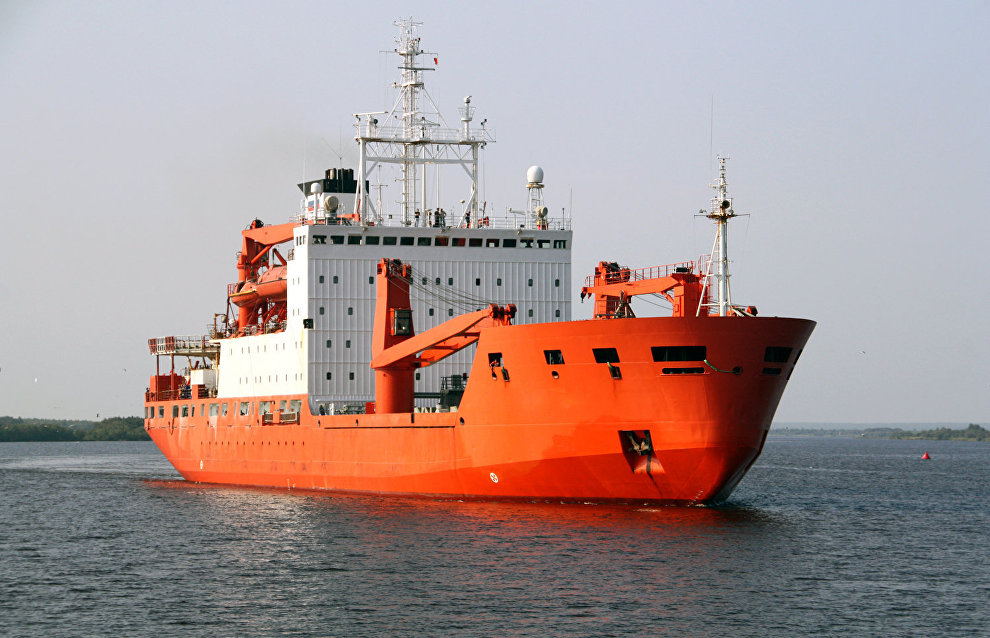Arctic Floating University 2016 expedition underway
The Arctic Floating University 2016 international expedition has started out on its eighth research and educational voyage in the Arctic on board the Professor Molchanov, a scientific research ship belonging to Sevgidromet northern hydrometeorology agency. The Russian Geographical Society's website reports that this year's expedition will last 20 days and end on June 27.
The expedition started out from Arkhangelsk and will travel via the islands of Kolguyev, Matveyev and Dolgy, Bely Nos station, Varnek settlement and Fyodorov station on Vaigach Island, Maliye Karmakuly, and Russkaya Gavan, Mak Bay, Inostrantsev Bay and Cape Zhelaniya on Novaya Zemlya before returning to Arkhangelsk.
This year's expedition will study ecosystem changes in the waters and coastal regions of the archipelagos and islands in Russia's western Arctic zone and give training to young scientists in different Arctic-related fields. The participants will also produce 3D-footage of Arctic landscapes in order to capture them as realistically as possible.
Fifty-six people from seven different countries are taking part in the expedition on board the Professor Molchanov this year. They include students and teachers from 17 research and scientific educational establishments in Russia, Indonesia, Norway, Germany, Switzerland, Canada and Brazil. The young specialists will gain experience in hydrometeorology, ecology and natural resource use, Arctic biology and other fields during the expedition and will learn about the Far North indigenous peoples' way of life and the landscapes of the Novaya Zemlya Archipelago.
In a joint event with the Russian Military-Historical Society, the expedition participants will leave a wreath in the White Sea in memory of the sailors who lost their lives on the Arctic convoys during World War II.
The Arctic Floating University is an educational project that aims to bolster Russia's scientific presence in the Arctic and train specialists for work in the polar regions. The Floating University made its first voyage in 2012.
